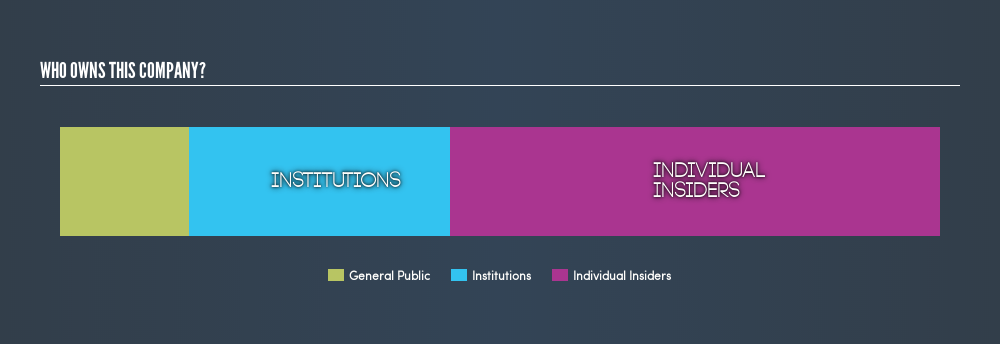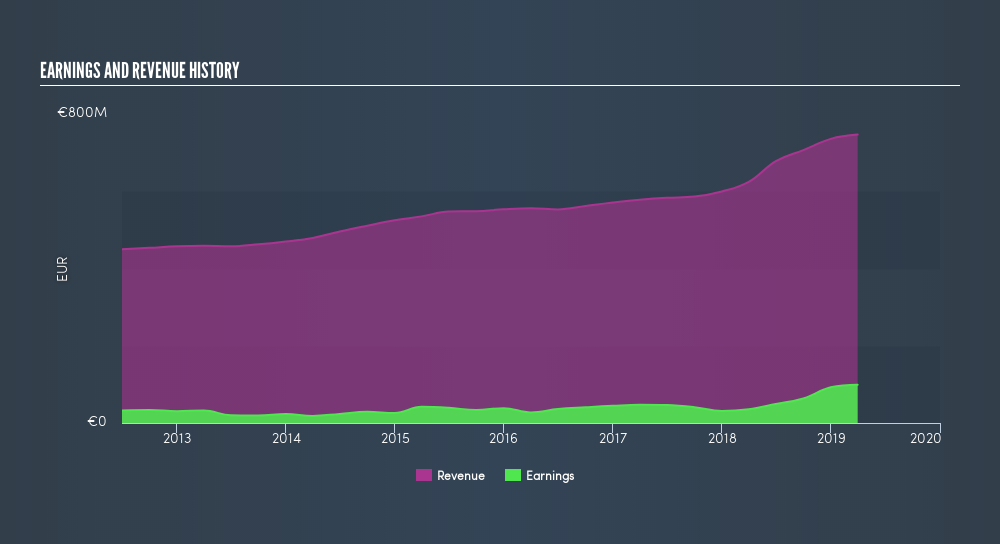- Germany
- /
- Healthtech
- /
- DB:COP
What Type Of Shareholder Owns CompuGroup Medical Societas Europaea's (FRA:COP)?

Want to participate in a short research study? Help shape the future of investing tools and you could win a $250 gift card!
A look at the shareholders of CompuGroup Medical Societas Europaea (FRA:COP) can tell us which group is most powerful. Large companies usually have institutions as shareholders, and we usually see insiders owning shares in smaller companies. Warren Buffett said that he likes 'a business with enduring competitive advantages that is run by able and owner-oriented people'. So it's nice to see some insider ownership, because it may suggest that management is owner-oriented.
CompuGroup Medical Societas Europaea has a market capitalization of €2.9b, so it's too big to fly under the radar. We'd expect to see both institutions and retail investors owning a portion of the company. Our analysis of the ownership of the company, below, shows that institutions own shares in the company. We can zoom in on the different ownership groups, to learn more about COP.
See our latest analysis for CompuGroup Medical Societas Europaea

What Does The Institutional Ownership Tell Us About CompuGroup Medical Societas Europaea?
Institutional investors commonly compare their own returns to the returns of a commonly followed index. So they generally do consider buying larger companies that are included in the relevant benchmark index.
CompuGroup Medical Societas Europaea already has institutions on the share registry. Indeed, they own 30% of the company. This implies the analysts working for those institutions have looked at the stock and they like it. But just like anyone else, they could be wrong. If multiple institutions change their view on a stock at the same time, you could see the share price drop fast. It's therefore worth looking at CompuGroup Medical Societas Europaea's earnings history, below. Of course, the future is what really matters.

CompuGroup Medical Societas Europaea is not owned by hedge funds. Quite a few analysts cover the stock, so you could look into forecast growth quite easily.
Insider Ownership Of CompuGroup Medical Societas Europaea
While the precise definition of an insider can be subjective, almost everyone considers board members to be insiders. The company management answer to the board; and the latter should represent the interests of shareholders. Notably, sometimes top-level managers are on the board, themselves.
Insider ownership is positive when it signals leadership are thinking like the true owners of the company. However, high insider ownership can also give immense power to a small group within the company. This can be negative in some circumstances.
Our information suggests that insiders own more than half of CompuGroup Medical Societas Europaea. This gives them effective control of the company. That means insiders have a very meaningful €1.6b stake in this €2.9b business. It is good to see this level of investment. You can check here to see if those insiders have been selling any of their shares.
General Public Ownership
With a 15% ownership, the general public have some degree of sway over COP. While this group can't necessarily call the shots, it can certainly have a real influence on how the company is run.
Next Steps:
It's always worth thinking about the different groups who own shares in a company. But to understand CompuGroup Medical Societas Europaea better, we need to consider many other factors.
I like to dive deeper into how a company has performed in the past. You can find historic revenue and earnings in this detailed graph.
If you are like me, you may want to think about whether this company will grow or shrink. Luckily, you can check this free report showing analyst forecasts for its future.
NB: Figures in this article are calculated using data from the last twelve months, which refer to the 12-month period ending on the last date of the month the financial statement is dated. This may not be consistent with full year annual report figures.
We aim to bring you long-term focused research analysis driven by fundamental data. Note that our analysis may not factor in the latest price-sensitive company announcements or qualitative material.
If you spot an error that warrants correction, please contact the editor at editorial-team@simplywallst.com. This article by Simply Wall St is general in nature. It does not constitute a recommendation to buy or sell any stock, and does not take account of your objectives, or your financial situation. Simply Wall St has no position in the stocks mentioned. Thank you for reading.
About DB:COP
CompuGroup Medical SE KGaA
Provides e-health services in Germany, Western and Eastern Europe, North America, and internationally.
Moderate growth potential with mediocre balance sheet.
Similar Companies
Market Insights
Community Narratives





